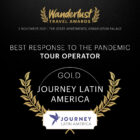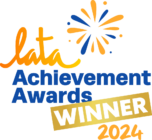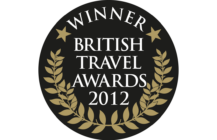Homage to Patagonia

Patagonia is a transforming landscape. In its endless wildness, McCarthy and I transformed ourselves into our own home-grown versions of Butch and Sundance.
Our boat trip to the Grey Glacier had to be postponed. Powerful and sudden winds known locally as the williwaws sent billowing clouds of spray clawing skyward as they streamed across the many lakes. The winds are constantly moving and circling the hills in their region, like a pack of preying wolves. Suddenly they flow up and over the cordilleras, descending ravenously on the landscape below. Arising with little warning, their power and the immense volume of driving spray create conditions too treacherous for any kind of vessel.
I had seen something like this once before while walking along the famine road in the Doolough valley in Co. Mayo. An occasional pillar of spray, like a miniature tornado was tossed up from the Lough water by the cross winds snarled up in the valley. I remember saying to myself then, how it was easy to understand why rural people were so religious. But this fierce, elemental ballet of wind and rain and rock drained me of such notions. I fell back on Hudson’s words of an elemental animism that would not fit easily into the compartments of human reason. I thought of Moses questioning God "Who shall I tell them you are?" to which he received the iconoclastic reply: "I am that I am." Patagonia was answering all my questions in the same manner.
Some days later John and I were hiking as close as we could get to the glacier. In the distance the shimmering topaz of the vast expanse of frozen water confronted us. I had to remind myself how all the laws of physics were stood on their head in this land.
This eternal wall of water had, after all, broken open granite mountains. Epochs of glacial sculpting were everywhere around us. Granite infusions pressed into darker sedimentary rock and were then capped by even darker rock everywhere around us. In the early morning and evening light these rock formation seemed to take on their own inner Technicolor glow. We looked around us at the small opalesque fragments of icebergs that had broken free from the glacier wall. We stood watching their cumbersome movement. The sun was shining through the gnarled branches of ancient beech trees. The last red and yellow ragwort burned like sparks in the yellow, gold and green bushgrass. I felt again that we were standing in that symphonic paradox that this strange land threw up at you.
We spent our day tramping round the foothills. It was obvious from our enthusiasm that Butch Cassidy and the Sundance Kid had not died, but were alive and holed up in Chile, posing under the alias of Keenan and McCarthy. Oddly, being on horseback seemed to come easy to me, and Sundance, Audrey and I went Sundancing across the golden pampas with exuberant yells and whoops. Our enthusiasm was unquenchable.
we thought we could conquer the hills towering around us and we decided to try it. A long five hour trek to Laguna Azul, a lake high up in the mountains, was to be our final adventure. Over dinner and drinks we talked about it with the excitement of fools, we would have no trouble rounding up our herds of yaks, those strange beasts we had talked about during our captivity and had dreamed of farming here in Patagonia.
The day was bright and mild as we set out and with steady confidence and were soon in the foot hills of the cordillera. Our guide Monte eyed us with wry humour and suggested we take the quick way over the top rather than around. We agreed, and Monte had us all dismount. He needed to move the saddles forward and tighten the girths. With a final instruction to give our mounts a loose rein we began the climb. Butch and Sundance were going to stake their claim in the lake-clotted hills.
Our horses’ heads dipped deeply and we leaned forward and clung tightly to the saddle horn. The climb seemed endless but when we turned to view the sheer mountain, my confidence disappeared as instantly as the weather in this place changed.
The path was only about a foot wide, too many hundreds of feet below was the valley we had galloped across earlier. My horse’s name was Rabbit and I prayed furiously to every God I believed and all the others that I didn’t, that both me and the horse could be immediately transformed into one of those animals so we could scamper into some hole somewhere. There was a big enough hole of absolute panic opening up inside me. Monte made precarious hairpin turns around gullies that if I had fallen into I thought I would fall forever. I imagined the horse and I tumbling into one of these hell holes.
The lather on the horses shoulders and hind quarters was matched by the fear lathering up in me. Turning one of the hairy bends and facing upward into an even more sheer climb, Monte stopped and nonchalantly lit a cigarette. For some minutes he puffed away while we lay on our mounts necks dreading if the horse before us should shy back and send us toppling into oblivion. Butch and Sundance were still galloping down on the pampas below but up here, several jellies were shivering on horse back.
Finally Monte moved on and we enthusiastically followed. But this enthusiasm was primed by panic not confidence.
Soon we were cantering and galloping through the hill top glades and open spaces. The autumnal colours and the silence that submerged us acted like a kind of balm. Then the silence was broken by distant boom.
"Avalanche" said Monte, pointing across to the distant mountains. The resounding paradox of Patagonia was declaring itself again. We soon found our lake and enjoyed a rustic lunch washed down with fine Chilean wine named after the 120 patriots of Bernardo’s revolutionary Brigade. So even the legendary ghost of the great liberator O’Higgins was in these far hills with us.
We left our horses with Monte and travelled back to our hotel by van. On our way we witnessed a double rainbow, God’s ancient promise. Onward we continued throughout the lake region. Everywhere abounded with animal life. Gorgeous pink flamingos filling the waters edge; further on Andean condors wheeled in search of food and everywhere along the rough roadways guanacos stood and eyed us imperiously. Perhaps they live only under the rainbow and were immune to the disturbing harshness of their homeland. It would be impossible for me to sum up this mystical paradox that penetrates deep into you. Neruda had done it better than me:
Bitter territory, southern reach of water.
I crossed the ribs, the feet, the cold finger, of the planet,
looking down from above on its set frown,
stubborn mountains and leftover snow,
domes of emptiness, seeing,
like a ribbon unwinding,
under the iron wings,
the hostility of the natural world.
From up here I stroke my own skin, my eyes, my sorrows,
and in my extended self I see the shadow
My own Patagonia
I belong to the harsh contradictions
of some huge star that fell, defeating me,
and I am no more than a hurt root
of that slow landscape.
The whirling snow burned me,
the splinters of ice,
the persistence of the wind,
sheer cruelty, the night sure and hard as a spine
I ask of the earth, of my fate
this silence which belongs to me.
By Brian Keenan and John McCarthy.
Tailor-made holidays
Flexible, custom-made holidays to Latin America created to match your exact requirements: our tailor-made itineraries are as unique as the clients for whom they are designed.
Design my trip


























